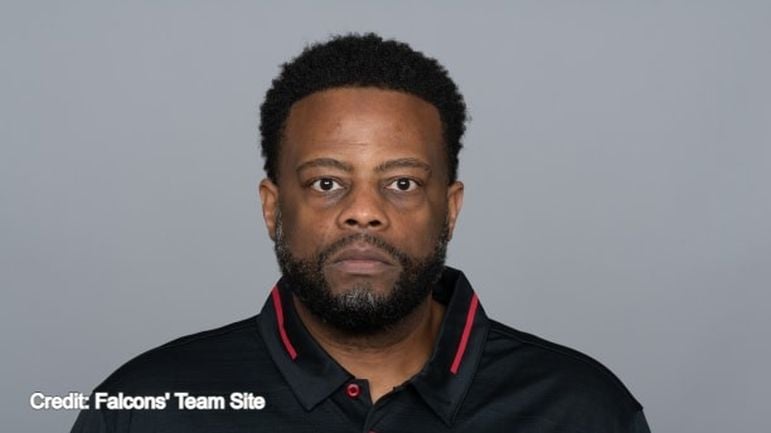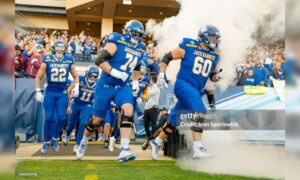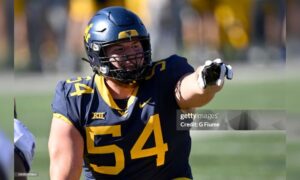The Pittsburgh Steelers recently hired Roderick Moore as their new sports science coordinator, who most recently was the Assistant Strength and Conditioning coach with the Atlanta Falcons.
But in taking a bit of a deep dive into Moore, I’ve learned that his experience in the weight room and working with the data and science aspect of the game is extensive.
Moore started his football career playing at Morehouse College, an HBCU in Atlanta, Georgia. He was on both the football and track and field teams there, being named the football team captain his senior year and participating in the HBCU All-Star game.
From there, Moore went to the University of Tennessee, where he worked his way up the ranks in their football program. He started as a Graduate Administrative Assistant before being moved to the Strength department. Moore went from Graduate Assistant to Assistant to Associate Head Strength Coach in around 10 years total at the university.
Florida International University was Moore’s next stop, where he was named the Head Football Strength Coach in 2007. This is where Moore first began his journey into the science behind the game.
“I was having a conversation with our head football coach, and we were talking about conditioning,” Moore recalled on The Human Kinesome Project podcast. “What guys need to condition and what guys don’t? I said, ‘Coach, I feel like our skill guys and even our combo guys don’t need to condition.’ We were running a lot, we were on turf, it was 90-degree weather, it was almost 100% humidity, we wanted guys to maintain their weight, but we were expending so much energy, so how was that possible? So I went to K-Mart, got some pedometer, and put it on a skill guy who was in the NFL. He ran 3.2 miles that day. It was a spring practice, which was a moderate practice…I showed that to coach.”
With all the advancements we see in the game today, it’s crazy to look back just 15 or so years ago and see Moore buying pedometers to track a player’s distance, but that kind of data just didn’t exist back then. It was impossible to tell if your players were running two miles or 3.2 beyond just an eyeball estimate. Another interesting tidbit about this anecdote is that, though Moore didn’t name him, the only skill position player who made the NFL from FIU at that time was Former Colts WR T.Y. Hilton.
He had a few stops in between at Cybex and BILT doing sales, but Moore found himself back in the sports science realm at Catapult in 2013. Catapult is the premier data-tracking platform across both college football and the NFL. It tracks how far players travel, their acceleration speed, and many other things. In 2021, it partnered with the Falcons, which was the last NFL team the company wasn’t working with, which was also Moore’s first year with the team. Moore was likely a reason for the Falcons finally working with Catapult, or at least an asset in helping the staff get acclimated with the platform.
As you’ve seen if you’ve watched the movie Moneyball, it takes time for the old guard to adapt to new, technology-based ways of doing things in sports. A lot of people in the industry claimed that Catapult was making teams “soft” and just an excuse to get players out of doing extra conditioning work out of an abundance of caution.
“A lot of times coaches would ask me, ‘I hear Catapult makes your team soft?’” Moore said. “You make your team soft, not Catapult. You determine how you are going to use this data. Are you going to use it to say we aren’t practicing today, or are you going to use it to push an athlete a little harder? Or if you’re trying to run an up-tempo practice, is it really up-tempo?”
Moore would spend four years at Catapult and was at one point their Vice President of Sports Performance.
Catapult is more of a movement-based platform, but that’s not the only type of data that teams are using now. There are also force-based platforms and force plate technology, and that’s what Moore explored next as he worked his way through the industry.
A force plate is essentially a small platform you perform various athletic actions on, that tracks the force you use to perform that action. One simple application of it is to test someone’s balance.
He first worked at Sparta Science, where he got an introduction to force plates, and then at VALD, where they used motion-tracking-based technology in addition to force plates.
“You get kind of a blueprint on determining if there is an athlete injury risk and if we can mitigate that,” Moore noted of force plates. Everybody’s talking about AI, but we are still trying to work through that narrative to determine what’s true and what’s not.”
As we continue to move into the future of football and football technology, teams are looking for any little edge they can get. Having a guy like Roderick Moore, who is so well-versed in a variety of different types of tech, is a huge asset for the Steelers in 2024 and beyond.








